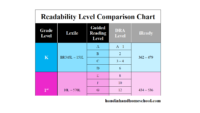Students with Executive Functioning Disorder (EFD) have great difficulty self-regulating their behavior and staying organized. A student with EFD may have problems with:
- Planning and writing a research paper
- Handing in homework, even when they did it
- Recalling math facts that were previously memorized
- Telling or writing a story in sequence
- Determining how much time a project will take
- Keeping track of more than one idea at a time
Parents and teachers of students with EFD may find these types of behaviors frustrating. Sometimes you might even say, “Gosh, why can’t this kid pay more attention to what he’s doing?”
The fact is, people with EFD are not lazy or defiant. Their brains just aren’t wired to be organized in the same way as most people.
The good news is that brains continue to grow and mature into adulthood. You can help a child with EFD learn strategies to overcome the learning difficulties they face. New cognitive connections can be made and faulty connections can be “rewired”, but it takes time and a lot of patient support from caring adults.
Strategies for EFD
Organized independence should be the goal for a child with Executive Functioning Disorder. As parents, we want to see our kids succeed, so sometimes we do more work than we should in helping them meet goals and obligations. For younger kids, this is fine. But, unless you plan on going off to college with your child, you need to begin to slowly take away some of your support so they can further develop and practice necessary Executive Functioning life skills.
The key to successfully helping your child develop EF skills is to have them be a part of the solution. Ask them what they think might help. Try implementing a couple of strategies at a time. Check in with your child after a week to see how they think the strategy is helping them. If one strategy doesn’t work, have your child brainstorm with you what you could do differently.
Time Management
- Use a large monthly calendar that shows daily activities and times.
- Use a DayMinder-type calendar for daily to-do lists.
- Set a timer on your child’s cell phone or within the house to give a 10-minute warning before an activity begins
- Backwards plan a project where you break down separate goals that will help you meet a due date.
- Predict how long a task will take. Time yourself and see how close you were.
Space Management
- Make tidying up a part of your daily schoolwork routine.
- Use bins or baskets to keep toys and work supplies separated.
- Minimize distractions with lighting and noise.
Material Management
- Create a color coded system so all work for one subject can be kept in one place. For example, a math folder, binder, and notebook are are red. History items are all blue.
- Keep a set of work materials, such as pens, pencils, calculator, scissors, and blank paper, in each room where your child works.
Work Management
- Create daily routines for accomplishing certain tasks.
- Give directions in writing.
- Use a flowchart or checklist to remember the steps of a math formula or task.
Last modified on April 14, 2020




